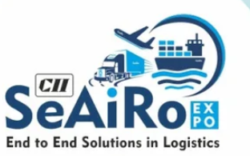The COVID-19 pandemic disrupted the way world functioned. Despite being faced by unprecedented and challenging situations, Maersk kept customers’ supply chains running through operational resilience and accelerated digitalisation
The COVID-19 pandemic affected the entire world, and that too in a staggered manner. The pandemic affecting different geographies at different times in different magnitudes created an unprecedented situation for global trade. The Far East shut down first creating a supply shock during the early days of the pandemic. As the pandemic moved towards the West, there was a demand shock that got created. And then there were countries and geographies that were faced with second waves creating more panic than before – all leading to a disruption in the way markets had traditionally worked.
The impact of the pandemic specifically in India can be highlighted in the areas of manufacturing, transportation, clearance and congestion at ports which created various bottlenecks right at the beginning of the lockdown. With manufacturing coming to a standstill, exports went down suddenly. Truck drivers returned to their hometowns fearing infection of the virus, resulting in landside transportation facing tremendous pressure. Shortage of manpower slowed down clearances. The need for social distancing kept manpower from across industries away from operations. All of this ultimately caused congestion across the infrastructure. As the lockdowns started easing, existing problems started getting resolved, but new ones popped up – exports bounced back strongly while imports remained subdued leading to an imbalance in availability of empty containers.
Setting the priorities right from the beginning
When the pandemic struck, Maersk set three priorities globally – ensuring the safety of its employees, supporting its customers with their supply chains and helping the society fight the virus.
To address the first priority, Maersk activated work-from-home protocols for all its office-going employees in India, right at the beginning of the lockdowns. Adequate IT infrastructure was put in place to support all the employees working from home and provide them a seamless experience.
To support customers and their supply chains, Maersk ensured that the vessels kept sailing, warehouses and other infrastructure kept running and even the ports and terminals kept operating. Maersk also offered a host of digital solutions to its customers to ensure that their supply chains weren’t hampered even during lockdowns when physical movement was not possible. With solutions provided on Maersk.com and Maersk mobile app which facilitated getting rates online, booking cargo online, getting instant confirmations online and the possibility to track the shipment online – customers could do everything from the comfort and safety of their homes. The customers could even use digital documentation to avoid going physically to counters.
Finally, on the third priority, Maersk reached out to the societies and supported them with PPEs wherever required, provided medical and other essential supplies to people in need and carried out intensive drives to educate people around hygiene and safety in the tough times of pandemic.
Building solutions through resilience
Maersk kept adjusting its ocean network throughout the pandemic to suit the demands and requirements of the customers and the markets. While speeding up supply chains was a known phenomenon, Maersk slowed down the supply chains as well when the demand varied by even offering warehousing and storage solutions. In India, Maersk was also one of the first shipping lines to offer detention waivers to support the customers, understanding the challenges that they faced due to lockdowns.
To resolve issues that were arising out of market situations such as container shortage, Maersk undertook repositioning of empty containers from the Middle East to almost three times of what was being done in the past. Even within the country a lot of empty containers were moved from pockets of higher import to pockets of higher exports, thus facilitating trade as much as possible.
Going beyond the conventional
Maersk is going way beyond ocean logistics and offering customers end-to-end solutions by taking care of their booking management, providing them with landside transportation by road or rail, customs clearing their cargo, facilitating storage options through warehousing, and so on. Further, Maersk has also added air freight and less than container load (LCL) options for our customers which will continue to be built upon in 2021.
Maersk is seeing a higher demand for integrated logistics solutions wherein shippers or direct customers prefer single window access to all the solutions they require in their entire supply chain. This supports Maersk’s strategy to provide end-to-end logistics to customers and thus helping and supporting customers simplify their supply chains by integrating them together as a bundled offering.
“At Maersk, we are putting customers at the heart of every decision we take, including the efforts and investments we have been pouring into innovation and technology for accelerating transformation. Our digitalisation efforts really helped during this time by shifting a lot of manual processes to digital, thus ensuring that the supply chains don’t get impacted with the social distancing guidelines.”

Steve Felder, Managing Director, Maersk South Asia commented, “At Maersk, we are putting customers at the heart of every decision we take, including the efforts and investments we have been pouring into innovation and technology for accelerating transformation. Our digitalisation efforts really helped during this time by shifting a lot of manual processes to digital, thus ensuring that the supply chains don’t get impacted with the social distancing guidelines.”
Next level digitalisation
One specific effort that is expected to drive ground-breaking efforts in the coming times is that of TradeLens: a Blockchain-powered solution developed jointly by Maersk and IBM. TradeLens could help supply chain partners reduce average times through improved efficiency and timeliness in the creation and distribution of shared documents like commercial invoices, bills of lading, and packing lists that routinely get generated and exchanged between trading partners. Additionally, TradeLens could provide the transparency that allows importers identify opportunities to streamline their supply chain. The end-to-end visibility offered by TradeLens will allow customers to make well informed decisions and thus make their supply chains more efficient.
In totality, these digitalisation efforts have redefined the way the logistics sector is operating and will operate in the future – from being an industry that is heavily dependent on physical documents to the one that is digitally-enabled.
Conclusion
The COVID-19 pandemic has pushed everyone to rethink how businesses operated on a lot of fronts. Those who have shown resilience have been able to support and serve customers in the best way possible. The sourcing patterns are changing around the world and the pandemic has only accelerated this process. There might be more of deglobalisation and nearshoring in the future leading to lesser reliance on ocean logistics and a higher demand for inland logistics and services. Maersk, with its strategy of integrating the entire supply chain into a single solution for customers is already offering a single window access to the end-to-end needs in logistics.
Supply chains have proven to be the backbone of global trade during the pandemic and the global trade plays a significant role is world economics. Cost-effective, efficient and integrated solutions for global trade will play a very important role in the economic recovery post COVID-19 and Maersk is playing a crucial role in enabling this.







